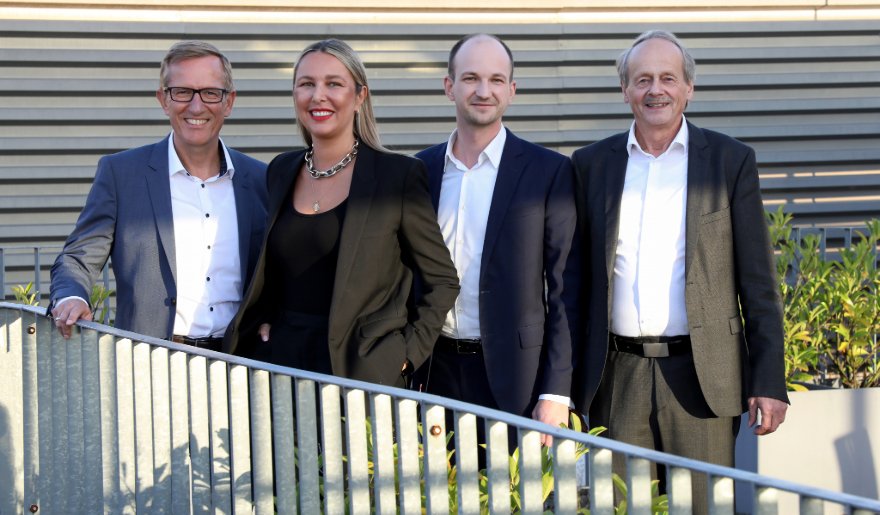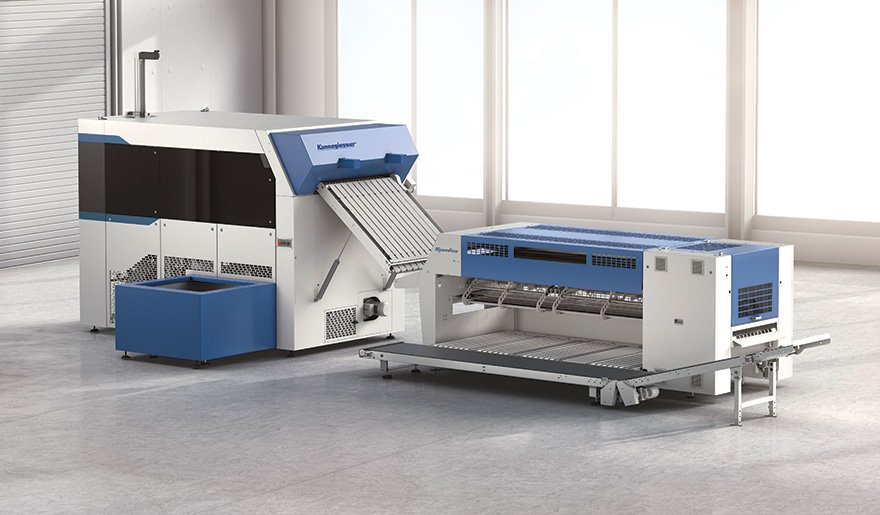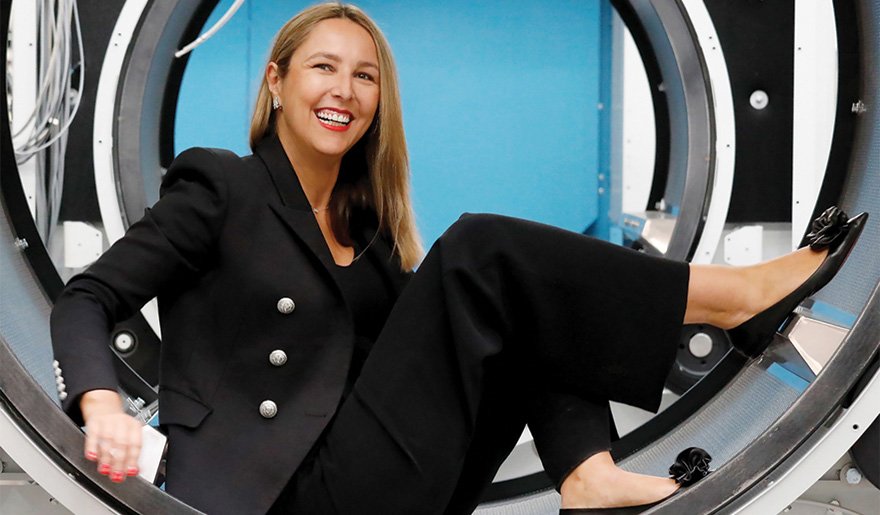

The system is equipped with state-of-the-art camera technology that enables a servo-driven gripper to recognize, separate and feed every single item into the folding machine at maximum speed. It processes batches of 4 different articles at an average output of 600 items per hour.

With the support of her father Martin Kannegiesser and Co-Managing Directors Otto Burger, Engelbert Heinz and Thomas Doppmeier (from left to right), Tina Kannegiesser takes over as Chairwoman of the Management Board. The generational change at the top of the company ensures the "continuation and continuation of the company with the combination of family influence and professional external management", says Martin Kannegiesser.

Martin Kannegiesser, CEO of Herbert Kannegiesser GmbH recently signed the agreement with E-Tech, Inc. owner Joe Schult. The merged company will focus on the North American market bringing completely integrated automated equipment solutions for laundry operators.
Kannegiesser is a well-known brand world-wide with the highest quality washing, finishing and uniform processing systems. The E-Tech product line of eRail Monorail and conveyor solutions as well as their industry leading eVue Software is the perfect complement to the Kannegiesser laundry processing equipment.


Since that time, Kannegiesser has been a manufacturer of the full range of industrial laundry machinery, able to offer a complete range for all individual laundry processes.
Passat was founded in 1949 and is deemed as a pioneer of modern drying and water extracting technology. In the 70's, Passat took over the successful tunnel washer manufacturers Poensgen and Voss - no other manufacturer in the world installed more batch washer systems than Passat - so this company was the unrivalled No. 1 with its pace-making batch washer lines Archimedia and Poensgen PWZ.


As the structural and technological changes in laundries became fiercer, Kannegiesser eventually made the decision to regard laundries as a complete system and, accordingly, to follow the path of developing and offering a harmonised complete range of machinery for the industrial laundry.
In 1990 - following the reunification of the two Germanies - an effective ironer production was developed backed by the immense fund of know-how of the former company Textima in Aue / Saxony, today's group member Kannegiesser Aue GmbH.

The internationalisation of the company was consequently continued and the product ranges enlarged.
Again and again Kannegiesser devoted itself to the concept of complete system solutions. This approach started in 1978 with the so-called garment lines with their core machine, the tunnel finisher. Kannegiesser was able to gain an unrivalled leading position in Europe in this sector.

The company faced its first crisis in the 60's.
The consequences drawn from this situation included the extension of the production range. For the garment industry, Kannegiesser became the pioneer in fusing technology, and for decades the brand Kannegiesser was a synonym for "fusing machines" in many countries, such as the USA: those who talked of their Kannegiesser meant their fusing machine.
But also the product range for the laundry industry was subject to a systematic expansion, and Kannegiesser evolved into the finishing specialist for modern laundries.

In a wooden shed near Vlotho he and four employees started the production of ironing machines for the garment industry, which at that time was one of the major industries in East Westphalia. Ironing presses for dress shirts became the speciality of the young company and established its international reputation.
Wherever in the world dress shirts were machine ironed, from Hong Kong to Brazil, from Russia to South Africa, a Kannegiesser machine was in operation. Over decades, the company position in this market niche came close to that of a monopoly. Irma Kannegiesser, the wife of the company founder, laid the foundation for the worldwide agency network.
From 1950 specially developed shirt presses swept the laundry market and were confronted with already established brands, such as Kleindienst, Brown, Ajax or Prosperity. The involvement in the garment industry on the one hand, and the laundry businesses on the other have left their imprint on the further development of the company.